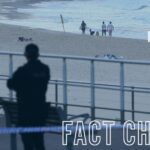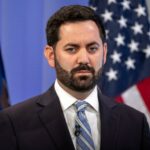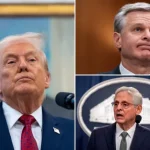
The U.S. Supreme Court will hear a case in which the National Rifle Association said a former New York state official wrongly pressured financial institutions from working with it.
The NRA says Maria Vullo, who served as superintendent of the state Department of Financial Services in 2018, used the aftermath of the Parkland school shooting to threaten institutions with action from her agency if they did not distance themselves from the NRA, according to CNN.
Trevor Morrison, an attorney representing Vullo, said the agency was simply issuing guidance to help banks and insurance companies that wanted to distance themselves from the NRA and that no one was being forced to do anything.
According to the NRA’s plea to have the court hear the case, the issue at stake is broader than the NRA, which said “both this Court and the lower courts have repeatedly rejected the notion that the government’s pursuit of its regulatory goals might justify blacklisting unpopular speakers.”
“The Second Circuit’s opinion below gives state officials free rein to financially blacklist their political opponents—from gun-rights groups, to abortion-rights groups, to environmentalist groups, and beyond,” the NRA wrote in asking the court to take the case.
“It also permits selective investigations and penalties targeting business arrangements with disfavored speakers, even where the regulator premises its hostility explicitly on an entity’s political speech and treats leniently, or exempts, identical transactions with customers who lack controversial views,” the NRA wrote.
“In sum, it lets government officials, acting with undisguised political animus, transmute ‘general backlash’ against controversial advocacy into a justification for crackdowns on advocates (and firms who serve them), eviscerating free speech rights,” the NRA wrote.
In the court papers, the NRA said Vullo “warned regulated institutions that doing business with Second Amendment advocacy groups posed ‘reputational risk’ of concern to DFS.”
The NRA also said Vullo would not punish banks and insurers for past infractions if they distanced themselves from the NRA while touting penalties against those who did not dump the NRA.
If you could read The Western Journal’s articles in other languages, would you?
Yes: 0% (0 Votes)
No: 0% (0 Votes)
The result, according to the NRA court filing, was that “numerous financial institutions perceived Vullo’s actions as threatening and, therefore, ceased business arrangements with the NRA or refused new ones.”
“An overt campaign by state officials to wield regulatory power against a disfavored civil rights organization—here the NRA—precisely because of its disfavored speech at least as clearly merits this Court’s attention and reversal,” the NRA wrote.
Eighteen states are supporting the NRA.
Montana, Alabama, Arkansas, Georgia, Iowa, Kansas, Kentucky, Louisiana, Missouri, New Hampshire, North Dakota, Ohio, Oklahoma, South Carolina, South Dakota, Utah, West Virginia, and Wyoming jointly filed a brief filed with the Supreme Court supporting the NRA’s request to have the court hear the case.
“This case concerns troubling allegations of governmental abuse of power,” the states say in their brief.
The states said that the decision being appealed gave “state officials license to target and crack down on their political opponents’ protected speech.”
“The Second Circuit’s decision gives government officials license to financially cripple their political opponents, or otherwise stifle their protected speech—whether those rivals advocate for school choice, abortion rights, religious liberty, environmental protections, or any other politically salient issue,” the states wrote.
The case is likely to be heard early next year, according to CNN.







